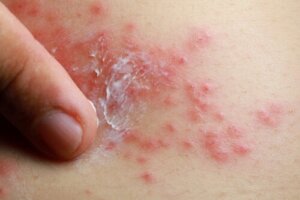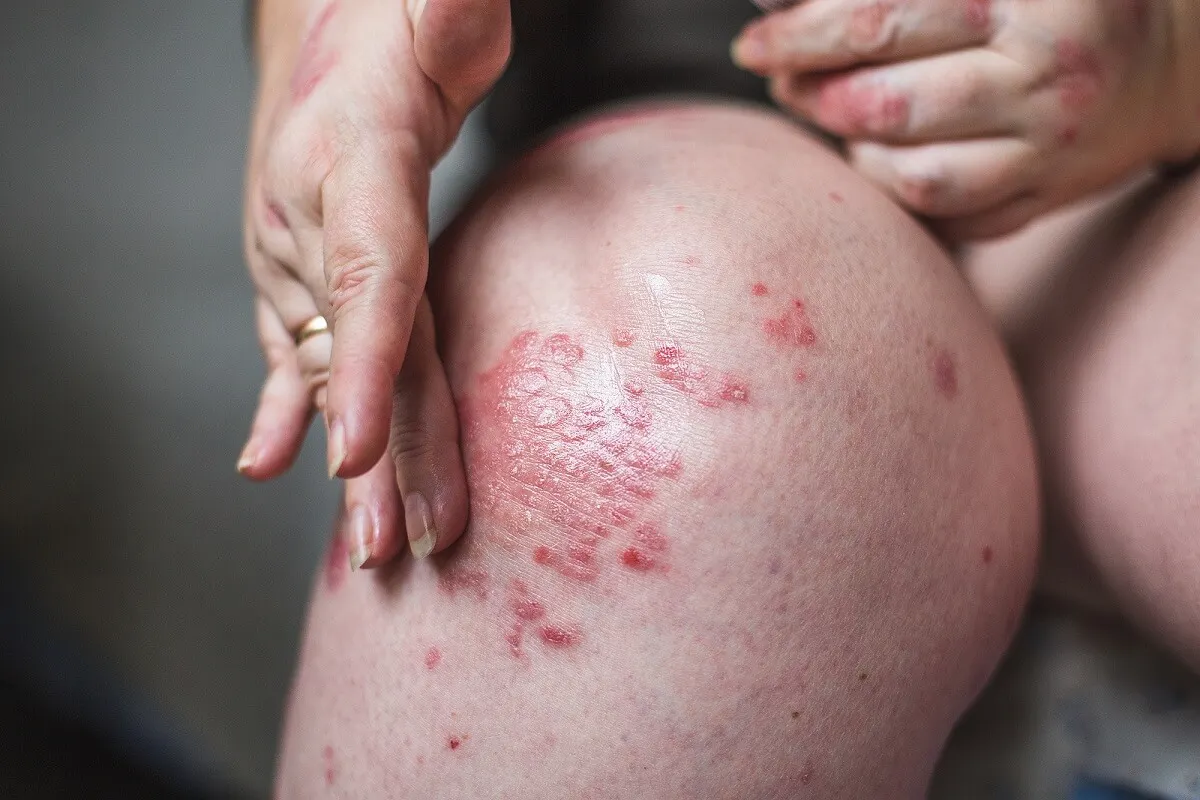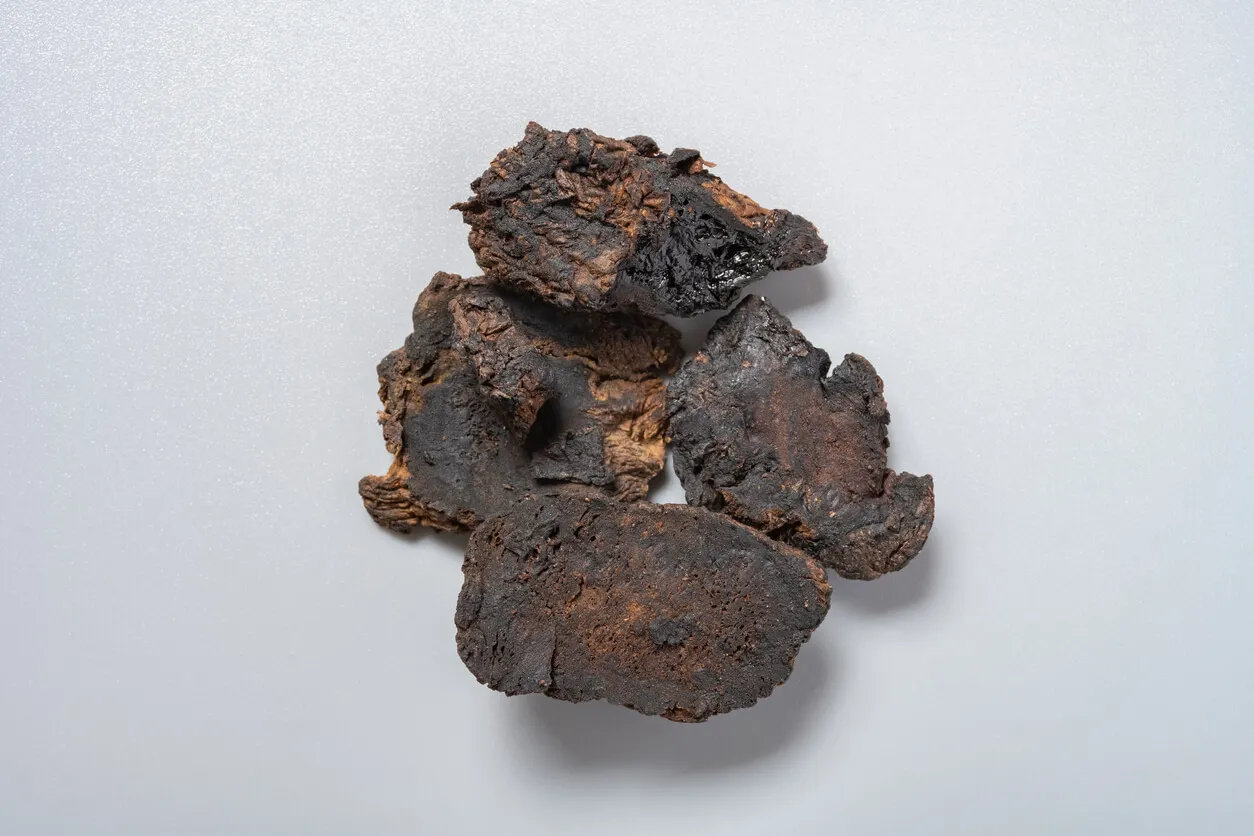Can You Treat Psoriasis with Traditional Chinese Medicine?


Reviewed and approved by the pharmacist Franciele Rohor de Souza
The treatment of psoriasis includes the use of topical, oral, or injected medications. In addition, some herbs from traditional Chinese medicine can be used as a complementary treatment. Thanks to their properties, they seem to help reduce symptoms such as inflammation and the formation of plaques and scales.
Of course, as with other natural remedies, you should always use them with caution and under medical supervision. Although popular literature describes a wide variety of benefits, there’s little clinical evidence to support their effectiveness.
So, which are the most commonly used? In the following article, we’ll talk about them all in detail.
The treatment of psoriasis with traditional Chinese medicine
Psoriasis is an autoimmune disease that manifests itself through the presence of scales, papules, erythema, and other symptoms. These all come from accelerated growth of skin cells. In turn, these symptoms cause itching, irritation, and pain in areas such as the scalp, knees, or elbows.
The diagnosis of this disease should be made by a physician. Once this is done, the medical professional will help you determine the best therapeutic options to control the condition. Now, although the treatment of psoriasis with traditional Chinese medicine can help, this is only a complement to professional medical treatment.
In fact, the first choice of treatment usually includes the use of the following drugs:
- Corticosteroids (in creams, ointments, sprays, and gels)
- Vitamin D analogues (such as calcipotriene and calcitriol)
- Retinoids (tazarotene)
- Calcineurin inhibitors (such as tacrolimus and pimecrolimus)
- Salicylic acid (in the form of shampoos and hair treatments)
In addition to the above, your doctor may also recommend phototherapy, oral medications, or injections. However, the choice of one therapy or another depends on the individual characteristics of each person.
After determining the best form of medical treatment, the physician may evaluate the possibility of complementary therapies such as Chinese herbal remedies. As with the medications mentioned above, these are available in topical or oral presentations. Let’s take a look at some of the most common options.

We think you may be interested in reading this, too: Prevent and Fight Against Psoriasis with these 7 Natural Remedies
1. Bai hua she she cao (Herba hedyotis)
This plant is also known as Oldenlandia herbacea. It’s native to Africa, but also grows in Asian soils, especially in China, Vietnam, and Indonesia. For many years it has been valued in traditional Chinese medicine because of its composition and its potential as an antioxidant and anti-inflammatory agent.
According to a test tube study shared in Chinese Medicine, the anti-inflammatory actives of this herb may help to reduce the symptoms of psoriasis and other inflammatory diseases. However, more evidence is needed to evaluate these effects in humans.
For now, it
s recommended for use in moderation, only in the doses indicated by the supplement manufacturer. In fact, excessive intake can lead to liver and kidney damage.
2. Jin qian cao (Lysimachia christinae)
Jin qian cao or jinqiancao, also called the “gold coin herb”, is one of the treatments for psoriasis used in Chinese medicine. Specifically, it refers to several species of herbs, most notably Lysimachia christinae.
According to research detailed in BMC Complementary Medicine and Therapies, this species is noted for its abundant content of flavonoids, phenols, triterpenoids, volatile oils, organic acids, and quinones. These are believed to be behind its anti-inflammatory and antioxidant activity that may help with psoriasis.
Still, there are no conclusive studies on its safety and efficacy against this disease. Most of the data are anecdotal. Therefore, it should be used with caution and only under medical supervision. This is because it may cause liver damage if you take it in excess.
3. Qing dai (indigo naturalis)
Qing dai is an herbal remedy obtained from the dried leaves and stems of the species Baphicacanthus cusia (Nees) and Isatis indigotica Fortune (Fort) plants. In general, it’s said to have anti-inflammatory and antiproliferative qualities.
In this regard, a review shared in Archives of Dermatology found that topical use of qing dai was helpful in decreasing scaling, itching, and redness in people with psoriasis. In particular, the treatment was applied for a period of 8 weeks.
Despite the results, it was determined that there are drawbacks to using the product on visible areas of the skin, since the ointment has a deep blue color. In fact, it may even stain clothing permanently. Itching and irritation were also reported after application, even though they were mild.
4. Sheng di huang (Radix rehmanniae)
In traditional Chinese medicine, Radix Rehmannia has been a widely used treatment for psoriasis. Proponents suggest that it helps stimulate good circulation, as well as reduce inflammation and pain that is often exacerbated when the skin is exposed to certain conditions of moisture and heat.
In an animal study reported in Carbohydrate Polymers, R. rehmanniae extracts helped increase glutathione production in the skin when used with ultraviolet (UV) light therapy. It also acted as an immunomodulator. All of this, taken together, supports skin health in the case of this disease.
Despite these findings, it’s still unclear whether the plant can actually alleviate the symptoms of psoriasis in humans. Like the aforementioned plants, too much of it is toxic to the liver.

Like this article? You may also like to read: Psoriasis and Coronary Heart Disease: How Are They Related?
So, does treating psoriasis with traditional Chinese medicine work?
Whether traditional Chinese medicine herbal supplements work for psoriasis depends on the individual case. While it does indeed lead to an improvement in some patients, there are no relevant effects in others. For this reason, these plants are only considered to be a complementary approach.
Ideally, a small sensitivity test should be performed before topical use of any of these remedies. If there are no undesired reactions after 12 hours, they can be used without problem. In any case, the manufacturer’s recommendations for use should be followed, as excesses can be quite harmful.
Psoriasis is a complex disease that requires several types of treatment and therapies. Therefore, the first option is always to consult a dermatologist so that he/she can evaluate your case and thus determine the best alternatives.
All cited sources were thoroughly reviewed by our team to ensure their quality, reliability, currency, and validity. The bibliography of this article was considered reliable and of academic or scientific accuracy.
- Luo, Y., Chen, J., Kuai, L., Zhang, Y., Ding, X., Luo, Y., Ru, Y., Xing, M., Li, H., Sun, X., Li, B., & Li, X. (2021). Chinese Herbal Medicine for Psoriasis: Evidence From 11 High-Quality Randomized Controlled Trials. In Frontiers in Pharmacology (Vol. 11). Frontiers Media SA. https://doi.org/10.3389/fphar.2020.599433
- Zhang, Y., Liang, Y. & He, C. Anticancer activities and mechanisms of heat-clearing and detoxicating traditional Chinese herbal medicine. Chin Med 12, 20 (2017). https://doi.org/10.1186/s13020-017-0140-2
- Wu, N. H., Ke, Z. Q., Wu, S., Yang, X. S., Chen, Q. J., Huang, S. T., & Liu, C. (2018). Evaluation of the antioxidant and endothelial protective effects of Lysimachia christinae Hance (Jin Qian Cao) extract fractions. BMC complementary and alternative medicine, 18(1), 128. https://doi.org/10.1186/s12906-018-2157-1
- Lin Y, See L, Huang Y, et al. Comparison of Refined and Crude Indigo Naturalis Ointment in Treating Psoriasis: Randomized, Observer-Blind, Controlled, Intrapatient Trial. Arch Dermatol. 2012;148(3):397–400. doi:10.1001/archdermatol.2011.1091
-
Sui, Z., Li, L., Liu, B., Gu, T., Zhao, Z., Liu, C., Shi, C., & Yang, R. (2013). Optimum conditions for Radix Rehmanniae polysaccharides by RSM and its antioxidant and immunity activity in UVB mice. In Carbohydrate Polymers (Vol. 92, Issue 1, pp. 283–288). Elsevier BV. https://doi.org/10.1016/j.carbpol.2012.08.087
This text is provided for informational purposes only and does not replace consultation with a professional. If in doubt, consult your specialist.








